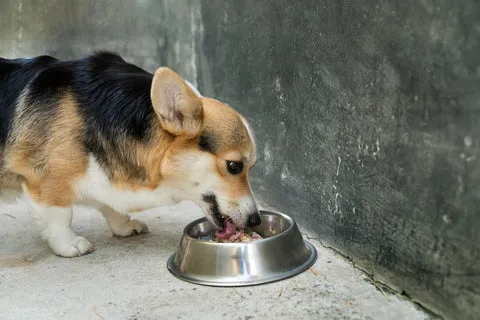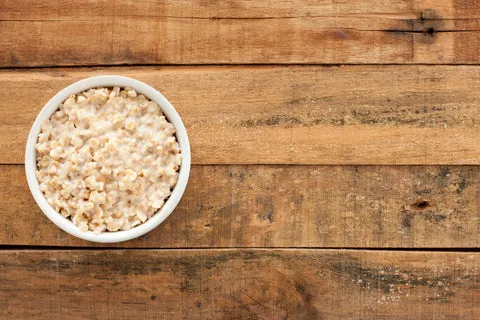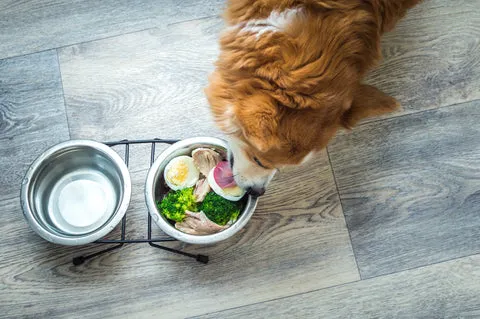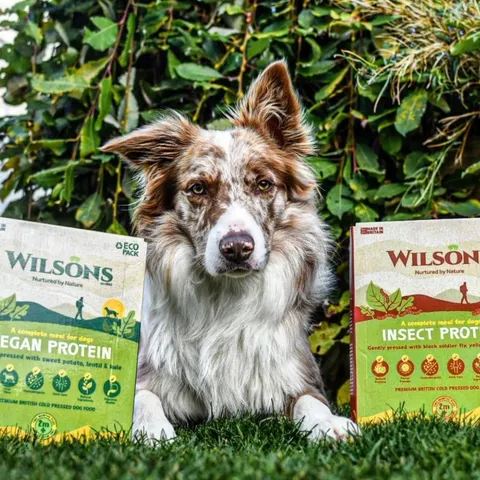When your beloved canine companion isn’t feeling their best, especially with an upset stomach, it can be a source of significant worry. Just like humans, dogs can lose their appetite or struggle with their usual food when digestive issues strike. Recognizing the signs of an upset stomach – such as vomiting, diarrhea, lethargy, or loss of appetite – is the first step, and knowing what to offer them safely can make a big difference in their recovery. Providing the right kind of food is crucial to support their energy levels, soothe their digestive system, and aid in a speedy recuperation. This comprehensive guide from Dog Care Story will explore the best dietary approaches for dogs experiencing digestive upset, ensuring you’re prepared to help your furry friend feel better.
Before attempting any home remedies or dietary changes, it’s always advisable to consult with your veterinarian. Persistent or severe symptoms could indicate a more serious underlying health issue that requires professional medical attention.
When to Consult Your Veterinarian
While many mild cases of upset stomach in dogs can be managed at home with bland diets, it’s vital to know when veterinary intervention is necessary. You should contact your vet immediately if your dog exhibits any of the following symptoms:
- Frequent or severe vomiting/diarrhea: Especially if accompanied by blood.
- Extreme lethargy or weakness: If your dog is unusually tired or unresponsive.
- Abdominal pain or bloating: Signs might include a hunched posture, whining, or a distended stomach.
- Loss of appetite for more than 24 hours: Or refusal to drink water.
- Signs of dehydration: Sunken eyes, dry gums, or skin that stays tented when gently pinched.
- Known ingestion of toxins or foreign objects: This is an emergency.
- Puppies, senior dogs, or dogs with pre-existing conditions: These groups are more vulnerable and require quicker veterinary assessment.
Your vet can accurately diagnose the cause of the upset stomach and recommend the most appropriate course of action, which may include medication, fluids, or further diagnostic tests.
Understanding Your Dog’s Upset Stomach
A dog’s upset stomach, medically known as gastroenteritis, can be caused by a variety of factors. These range from dietary indiscretion (eating something they shouldn’t), sudden changes in diet, food allergies or sensitivities, parasites, bacterial or viral infections, to more serious conditions like pancreatitis or inflammatory bowel disease.
When your dog’s digestive system is inflamed or irritated, bland, easily digestible foods become essential. The goal is to provide nutrition without further irritating the stomach or intestines, allowing the digestive tract to rest and recover. High-fat, highly seasoned, or complex foods are much harder for a compromised digestive system to process and can exacerbate symptoms like vomiting and diarrhea. Instead, focusing on simple proteins and carbohydrates can help bind stools, replenish lost nutrients, and provide gentle energy.
Best Bland Foods to Offer a Dog with an Upset Stomach
Having a few healthy, nutritious options ready can help you nurse your dog back to health when an upset stomach strikes. These ten options are generally considered safe and effective for dogs with digestive sensitivities.
1. Boiled Plain White Meat (Chicken or Turkey)
 Adorable Chihuahua looking up expectantly, waiting for a bland meal of boiled chicken or turkey to soothe its upset stomach
Adorable Chihuahua looking up expectantly, waiting for a bland meal of boiled chicken or turkey to soothe its upset stomach
Plain white meat, such as chicken or turkey breast, is an ideal option for a sick dog due to its ease of digestion and low-fat content. It provides lean protein, which is vital for recovery without burdening the digestive system. Always remember to remove any skin or bones before feeding, as these can pose choking hazards or further irritate a sensitive stomach.
How to Prepare:
- Rinse the meat thoroughly under cold water.
- Remove all excess fat, skin, and bones.
- Place the meat in a pot and cover with water. Bring it to a boil, then reduce the heat and let it simmer for 15-20 minutes until thoroughly cooked.
- Once cooked, drain the water and shred or cut the meat into small, bite-sized pieces for easier digestion.
- Allow it to cool completely before serving, either alone or mixed with white rice.
2. White Rice
White rice is a staple ingredient in many bland diets for dogs because it’s easy to digest and can help bind stools, especially if your dog is experiencing diarrhea. While brown rice offers more nutritional value, its higher fiber content can be harder on an upset stomach, making bland white rice the preferred choice for sick dogs. This can be a great addition to their meal, especially when paired with boiled chicken.
 A healthy Collie gazing at its empty food bowl, indicating it has finished its bland white rice meal for an upset stomach
A healthy Collie gazing at its empty food bowl, indicating it has finished its bland white rice meal for an upset stomach
How to Prepare:
- Rinse the rice under cold water to remove excess starch.
- Add the rice to a large pot, then add two parts water to one part rice.
- Bring to a boil, then reduce to a simmer. Cover the pan and let the rice cook on low heat for about 18 minutes, or until all the water is absorbed.
- Allow to rest and cool. Fluff with a fork before serving. Avoid adding salt or butter.
3. Cooked Sweet Potatoes
Plain, cooked sweet potatoes are a fantastic source of vitamins and dietary fiber, making them incredibly gentle on a dog’s stomach and intestines. They can provide essential nutrients like calcium, iron, and magnesium, which are important for your dog’s overall health during recovery. Cooked sweet potatoes are a much better option than raw ones, which are harder to digest and could worsen an upset stomach.
 Freshly cooked sweet potato slices, a vitamin-rich and fiber-packed food gentle on a dog's upset stomach
Freshly cooked sweet potato slices, a vitamin-rich and fiber-packed food gentle on a dog's upset stomach
How to Prepare:
- Peel the sweet potatoes and chop them into manageable chunks.
- Boil them in a pan of water until they are very soft.
- Drain the water and mash the sweet potatoes thoroughly.
- Allow them to cool completely before serving to your dog.
4. Plain Canned Pumpkin
Similar to sweet potatoes, pumpkin is highly effective in soothing an upset stomach and helping a sick dog feel better. It’s rich in vitamins that support the immune system and is packed with fiber, which can help regulate digestion, whether your dog is experiencing diarrhea or constipation.
 Happy Husky dog with a slice of plain pumpkin, an excellent source of fiber for digestive health and upset stomachs
Happy Husky dog with a slice of plain pumpkin, an excellent source of fiber for digestive health and upset stomachs
You can give your dog up to four tablespoons of plain canned pumpkin (not pumpkin pie filling, which contains sugar and spices) with their regular bland meal. Ensure there are no added sugars, spices, or other ingredients that could further irritate their stomach. Fresh cooked pumpkin (without skin or seeds) is also an option. For more insights on what human foods dogs can eat, consider reading our article on what can dog eat that’s human food.
5. Homemade Bone Broth
Bone broth is excellent for sick dogs as it delivers vital nutrients and minerals like sodium and potassium, while also aiding in hydration, which is crucial when a dog has an upset stomach. Its low carbohydrate content makes it gentle and easy to digest. When preparing, avoid using garlic or excessive salt, as these can be detrimental to your dog’s health.
 Cute puppy eagerly licking homemade bone broth, providing essential nutrients and hydration for a sick dog
Cute puppy eagerly licking homemade bone broth, providing essential nutrients and hydration for a sick dog
How to Prepare:
- Add beef or pork marrow bones, along with chicken or turkey bones, to a large cooking pot.
- Cover the bones with a few inches of water and cook on low heat for 20-24 hours. The long simmering time extracts maximum nutrients.
- Once finished, strain the liquid to remove all bone fragments and solids.
- Allow the broth to cool before serving. You can also freeze it in small portions for future use.
6. Meat-Based Baby Food (for puppies or finicky eaters)
For puppies struggling with an upset stomach, or for adult dogs that are particularly finicky when ill, stage 2 meat-based baby foods like chicken, lamb, or turkey can be a good feeding choice. Baby food is easy to chew and digest, and can help settle an upset stomach and manage diarrhea.
 Several Doodle puppies sharing a meal from a plate, possibly eating bland meat-based baby food for sensitive stomachs
Several Doodle puppies sharing a meal from a plate, possibly eating bland meat-based baby food for sensitive stomachs
Crucially, always check the ingredients list to ensure there are no additives toxic to dogs, such as garlic or onion powder. If you’re uncertain about any specific ingredients, always consult your veterinarian for advice.
7. Plain Poached Fish
Fish is a fantastic source of healthy fats and vitamins that can significantly boost your dog’s immune system and aid recovery when they are struggling with an upset stomach. The strong, appealing smell of fish can also often entice a dog with a lost appetite to eat again.
 A healthy Corgi enthusiastically eating from its food bowl, enjoying plain poached fish, a gentle and enticing meal for sick dogs
A healthy Corgi enthusiastically eating from its food bowl, enjoying plain poached fish, a gentle and enticing meal for sick dogs
How to Prepare:
- The best way to prepare fish for your dog is by poaching it. Similar to boiling chicken, add white fish (like cod or haddock) to a pan of water.
- Bring it to a boil, then reduce the heat and simmer for 10-15 minutes until fully cooked and flaky.
- Carefully remove all bones and cut the fish into small, digestible pieces before offering it to your dog.
8. Oatmeal
Plain, cooked oatmeal, made from rolled oats, can be very soothing for a dog’s upset stomach. It is high in soluble fiber, which can help with both constipation and diarrhea by regulating bowel movements. Oatmeal also contains antioxidants that can help reduce stomach inflammation.
 A warm bowl of plain cooked oatmeal on a wooden table, a high-fiber food that can soothe a dog's upset stomach
A warm bowl of plain cooked oatmeal on a wooden table, a high-fiber food that can soothe a dog's upset stomach
While beneficial, it’s important not to overdo it with oatmeal, as too much fiber could potentially make an upset stomach worse. Serve in moderation, ensuring it’s completely plain – no sugar, milk, or other additives. For more information on fiber-rich options, you might be interested in what high fiber foods can dogs eat.
9. Plain Yogurt with Probiotics
Plain, unsweetened yogurt that contains live and active cultures (probiotics) is an excellent food for a dog with an upset stomach. These beneficial bacteria can aid in digestion, support a healthy gut microbiome, and help regulate their digestive system, particularly if they are experiencing constipation or mild diarrhea.
 Cute puppy with a bit of plain yogurt on its chin, benefiting from probiotics to support gut health and aid an upset stomach
Cute puppy with a bit of plain yogurt on its chin, benefiting from probiotics to support gut health and aid an upset stomach
Plain natural yogurt is readily available at most grocery stores. Ensure it has no added sugar, artificial sweeteners (especially xylitol, which is toxic to dogs), or fruit. It can even be frozen and served as a cool, soothing treat for your dog.
10. Scrambled or Boiled Eggs (if no vomiting)
As long as your dog is not actively vomiting, eggs can be an ideal food choice. They are gentle on the stomach and provide a good source of easily digestible protein, which is essential for energy and recovery. Eggs are also an excellent energy booster if your dog feels a little lethargic after an illness.
 A contented dog eating a bowl of scrambled eggs and vegetables, a gentle source of protein and energy for recovering dogs
A contented dog eating a bowl of scrambled eggs and vegetables, a gentle source of protein and energy for recovering dogs
Scrambled without butter or oil, or simply boiled, are the best ways to prepare eggs for your sick dog to ensure they remain gentle on its stomach. If your dog is vomiting, however, it’s best to avoid eggs completely until the vomiting subsides. For general guidance on feeding your dog human food, check out our article on what can you feed your dog human food.
Transitioning Back to Regular Dog Food
Once your dog’s stomach has settled for 24-48 hours and they are consistently eating and keeping down the bland diet, you can gradually begin to reintroduce their regular dog food. This transition should be slow to avoid shocking their delicate digestive system.
Start by mixing a small amount (about 25%) of their regular food with 75% of the bland diet. Over the next few days, gradually increase the proportion of regular food while decreasing the bland food. Monitor your dog closely for any return of symptoms. If symptoms reappear, revert to the bland diet and consult your vet.
Addressing Chronic Upset Stomachs and Food Allergies
If your dog frequently suffers from an upset stomach or is often sick, it’s crucial to consult your veterinarian to rule out underlying health issues, including food-related or breed-specific allergies. Chronic digestive issues often indicate that a dietary change is needed beyond just a temporary bland diet.
Identifying Potential Allergens
Food allergies or intolerances can manifest as chronic gastrointestinal upset, skin issues, or ear infections. Common allergens include certain proteins (like beef, chicken, dairy, or soy) and grains (like wheat or corn). Your vet may recommend an elimination diet, where your dog eats a novel protein or hydrolyzed protein diet for several weeks to identify the culprit.
Cold Pressed Dog Food
For dogs with sensitive stomachs or food-related allergies, traditional kibble can sometimes be problematic due to how it’s processed. Cold pressed dog food offers an alternative. This type of dry food undergoes minimal processing at much lower temperatures compared to conventional kibble, which helps to retain more of its nutritional value.
 A happy dog next to a bowl of cold pressed dog food, an easily digestible option for dogs with sensitive stomachs or allergies
A happy dog next to a bowl of cold pressed dog food, an easily digestible option for dogs with sensitive stomachs or allergies
Due to its gentle preparation, cold pressed food is often easier for sensitive stomachs to break down and digest, aiding in overall digestive health. Many varieties are also available as grain-free options, perfect for dogs with grain sensitivities, providing nutritionally dense food without upsetting their tummies.
Insect Protein Cold Pressed Dog Food
An innovative and increasingly popular option for dogs with severe food sensitivities or meat-related allergies is insect protein cold pressed dog food. This complete and nutritionally balanced food is created with the same cold-pressed method, preserving nutrients and aiding digestion.
 A smart Collie looking at a bag of insect protein dog food, a hypoallergenic and nutritious choice for dogs with food sensitivities
A smart Collie looking at a bag of insect protein dog food, a hypoallergenic and nutritious choice for dogs with food sensitivities
Insects (such as black soldier fly larvae) are not only a sustainable protein source but are also highly digestible, hypoallergenic, and low in purines, making them an ideal choice for dogs prone to allergic reactions or chronic digestive upset. This novel protein source can be a game-changer for dogs who react to common meats.
Raw Frozen Dog Food
If your dog is a fussy eater or sensitive to its current kibble, a raw food diet can be a significant dietary change worth considering. Raw frozen dog food is typically made from natural, minimally processed ingredients and is often grain-free. This approach aims to mimic a dog’s ancestral diet, supporting digestion and improving overall health, including coat and skin condition.
 A dog named Dougal enjoying a meal of raw frozen dog food, beneficial for digestion and overall health in dogs with sensitivities
A dog named Dougal enjoying a meal of raw frozen dog food, beneficial for digestion and overall health in dogs with sensitivities
Raw diets often come in various formulations (e.g., 80/10/10 mixes of meat, offal, and bone, or enhanced mixes with added vitamins and minerals), allowing pet owners to tailor the diet to their dog’s specific needs and allergies. Always ensure that any raw diet is balanced and prepared according to veterinary nutritional guidelines to avoid deficiencies.
Navigating dietary choices for your dog with an upset stomach or allergies can be challenging, but with the right knowledge and veterinary guidance, you can significantly improve their comfort and health.
Conclusion
When your dog has an upset stomach, providing them with a bland, easily digestible diet is crucial for their comfort and recovery. Boiled white meat, white rice, cooked sweet potatoes, plain pumpkin, bone broth, baby food, poached fish, oatmeal, plain yogurt, and eggs (if no vomiting) are all excellent options to help soothe their digestive system. Remember to always prepare these foods plainly, without seasonings, oils, or added sugars.
For chronic upset stomachs or suspected allergies, exploring specialized diets like cold pressed, insect protein, or raw frozen foods, under the guidance of your veterinarian, can offer long-term solutions. Always prioritize consulting your vet for persistent symptoms or before making significant dietary changes. Your vigilance and care will help your beloved companion return to their happy, healthy self.
For more expert advice on canine nutrition and health, explore other articles on Dog Care Story!
